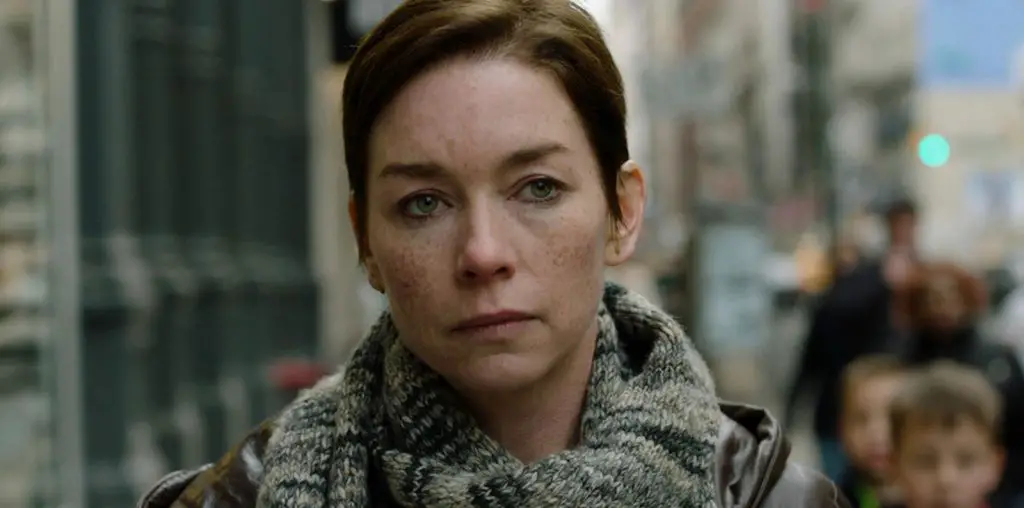
One of the most useful phrases the British – no strangers to useful phrases, they – ever invented is “Too clever by half.” What it means is, here is someone or something that is extremely smart, and that smartness is exactly what causes trouble.
Chicago filmmaker Sean J.S. Jourdan is too clever by half. His film “An Open Door” has the right premise to be very good, but in order to work properly, it needs a twist ending. Which would be fine, except that Jourdan then goes to so much effort to disguise his tracks that it’s obvious from a very early point that he can only be hiding a twist ending, and that makes the ending itself blindingly obvious.
Forgive my vagueness, but such effect as “An Open Door” has, it has from being seen blind. Because it is sort of effective: Michelle Watson (Suzanne Lang) is a desperate housewife with a sick child, who suspects her husband of cheating on her with a woman at work. Her attempts to keep her husband interested in their family range from the pathetic to the infantile, to the delusional, once the twist is revealed.
Michelle’s behavior is somewhat off-putting, and it’s to the credit of Lang that she plays the role without fear of seeming unpleasant. The character and actress are both interesting enough that I wish it wasn’t so immediately obvious what was really going on, for this undercuts the dizzy confusion that should draw us in to Michelle’s head. Instead, it’s just alienating.
Jourdan’s directing is strong, particularly in the beginning: there are many solid compositions and the suburban boredom of Michelle’s life is captured in claustrophobic detail. Two significant missteps late in the film do tend to lessen the atmospheric impact of the story: in one scene, Michelle is packing luggage with a bright pop song playing in the background, and the effect is more like a teenybopper music video than a dark tale of marital discord. Another scene, a conversation between Michelle and her son’s teacher, simply goes on for too long, robbing the story of its forward momentum.
But there is a lot of evident talent in this film, and Jourdan’s good control of setting demands a stronger and less sensational narrative than this. There are some very compelling observations made about the human condition here; but in the story as it stands, those observations are not revelatory, so much as they are obvious.
